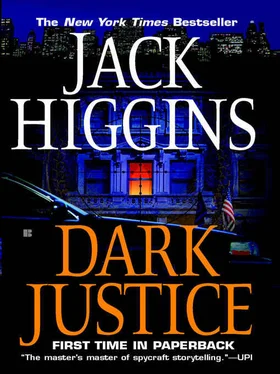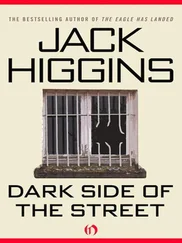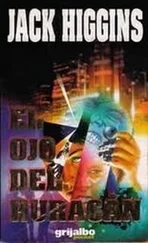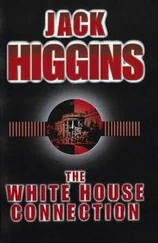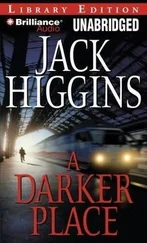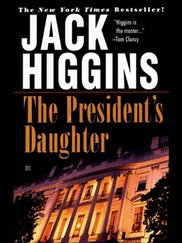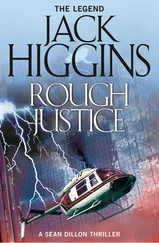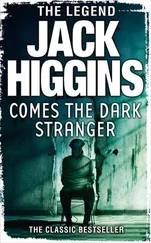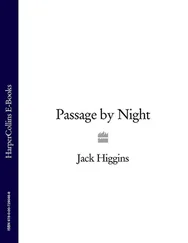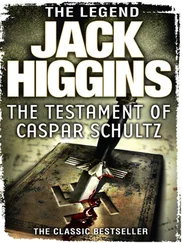It was then they heard vehicles approaching fast. “Farouk and his boys,” Belov said. “The cavalry arriving rather late.” He took out a pocket handkerchief and gave it to Ashimov. “Best I can do.”
“I’ll treasure it, Colonel,” and Ashimov held it to his face.
In the Ambassador’s office the following morning at the Russian Embassy by the Tigris, Belov and Ashimov faced an angry man.
“You had no right to become involved,” the Ambassador said. “This has gone all the way to the President in Moscow. It may not have occurred to you, Colonel, but our government’s position in the Iraq situation is a very delicate one.”
“I see,” Belov said. “You’ve been informed of the circumstances. Should I have refused Saddam’s invitation to the palace? I think that would have been difficult. Should I have refused to accompany him on his drive? I think not.”
“Good God, man, no one appointed you to be his guardian angels. Eight men – you killed eight.”
“I believe so. I would like to bring to your attention Major Ashimov’s gallant conduct in this affair. As you can see, his face will never be the same again. He’s lucky not to have lost an eye. I suggest he be recommended for a decoration.”
“Denied,” the Ambassador said. “And for the excellent reason that it never happened. That will suit Saddam, and it certainly suits our government.” He paused and then carried on. “A sense of self-importance can be considered a sin in some quarters. You go too far, Colonel, and this could seriously affect your career.”
The threat was implicit, but at that moment, the phone on his desk rang. He answered, listened, and the change on his face was plain.
“Of course, Excellency,” he said in Arabic and put down the phone. “That was Saddam. He wishes to see you both at once.”
“And do we go?” Belov asked, curiously gentle.
“I don’t seem to have any choice.”
“I’m sure Moscow will agree when you inform them. You will excuse us, then?” He nodded to Ashimov and led the way out.
At the presidential palace, they were met by Farouk, who was ecstatic. “What you did was heroic, incredible, Colonel.”
“You know who they were?”
“Oh, yes. Two of them were still alive and soon talked. Shiite rebels, naturally. They never stop trying. He’s waiting for you eagerly.”
When Farouk ushered them in, Saddam was behind his desk in full uniform. He got to his feet, came around and embraced Belov, then turned to Ashimov, examined the scar covered by gauze that ran from his eye to his mouth.
“How bad?”
“Sixteen stitches. An interesting memento, Excellency.”
“I like that.” Saddam laughed. “Every morning you look in the mirror to have a shave, you’ll be reminded of me. Now sit down, the both of you. I have things to say.
“I felt anger last night, but mainly impotence. I’m hedged in by the Americans and the British, even the United Nations are hardly my friends. The Shiites rebel, also the Kurds. I deal with them and people compare me to Hitler.”
“Excellency, what can I say?”
“I have only one great weapon. Money. Many billions deposited in safe havens around the world, and money on that level is power.”
There was a heavy pause. Belov, for want of anything better, said, “I wouldn’t argue with that.”
“Which brings me to the point. I owe you two my life. In my religion, this leaves me with a debt that must be repaid in some way. A sacred duty.” He turned to Ashimov. “You were obeying the Colonel’s instructions last night, am I right?”
“Absolutely, Excellency.”
“A fine soldier doing his duty. You have my eternal gratitude. As to your future, I leave that to your colonel here – in safe hands, I think, when you hear what I have to say.”
He went back behind his desk and sat, speaking directly to Belov.
“These are strange times in Russia, so many State-owned enterprises going on offer to the open market, and at such reasonable prices.”
“True, Excellency.”
“All my billions languish all over the world, from Geneva to Singapore, and I can’t invest because of the attitude of the Americans and the United Nations. It would amuse me to outfox them.”
“In what way?” Belov said carefully.
“By discharging my debt to you, Colonel, for saving my life. I understand that at the moment there are a number of oil fields up for grabs in Siberia, for sale by a government very short of the almighty dollar.”
“That’s true, Excellency.”
“How far would one billion dollars take you?”
Belov glanced at Ashimov, who looked awestruck, took a deep breath and turned back to Saddam. “A very long way, Excellency. There could be difficulties, but difficulties are meant to be overcome. If I can serve you in any way, it would be an honor.”
Saddam shook his head impatiently. “Not for me, my friend, for yourself. Don’t you think my life is worth a billion dollars?”
For a moment, Belov was speechless as the enormity of it sank in, but finally managed to say, “I’m overwhelmed.”
Saddam roared with laughter. “One billion? A drop in the ocean, but think what you could do. Give the damned Americans a run for their money. Now, that I would like to see. That would please me.”
“But, Excellency, what can I do for you?”
“Who knows? Be my friend in bad times? A man in the shadows when needed?” There was a briefcase on the desk, and he pushed it across. “I’ve had my people prepare these documents in here carefully. There are code words and passwords in here that will give you access to one billion dollars.”
He stood up, and Belov and Ashimov got up hurriedly. Saddam gestured at the briefcase. “Take it, Colonel.” And he laughed harshly. “My debt is paid.”
In the month that followed that extraordinary meeting, Belov found an excuse to visit Geneva, a certain caution in him, a refusal to believe it could be true. He took Ashimov with him, and it certainly was true, for the bankers jumped to attention.
So he returned to Moscow and resigned from the service, together with Ashimov, whom he took on as his personal aide. With all the expertise gained from so many years in intelligence, he compiled a list of the sort of people he needed to know, not only businessmen but also crooked politicians on the take, and if any such people wouldn’t play ball or tried to cause trouble, there was always Yuri Ashimov of the scarred face to take care of them.
In Siberia, government contracts were readily available, especially for someone with an apparently unlimited supply of dollars. After those early deals, he never really looked back, and in the Russia of those days, no one queried them.
Within five years, the original billion had become six, and when his old KGB friend Putin became President, it was just the icing on the cake. People didn’t want democracy; they wanted strength and power and got exactly that from Putin, which suited Belov perfectly, and on his end his economic miracle suited the government perfectly, so everyone was happy.
The emergence of Al Qa’eda and the growth of the terror movement were unfortunate, for one way or another, it led to the second Gulf War and the demise of Saddam, but the prospect of the Iraqi oil fields becoming available danced enticingly in front of him, and so he was content.
The postwar turmoil in Iraq was understandable. Although the capture of Saddam by American troops seemed to herald the prospect of a more stable future, at least for Iraq, Belov had never bought the idea that the fall of Saddam would have much effect on the Arab world anyway. Muslim militants such as Al Qa’eda would still pursue what they saw as a holy war with America and the Western world, pursue that war by what they saw as the only means available to them – terror.
Читать дальше
Конец ознакомительного отрывка
Купить книгу
